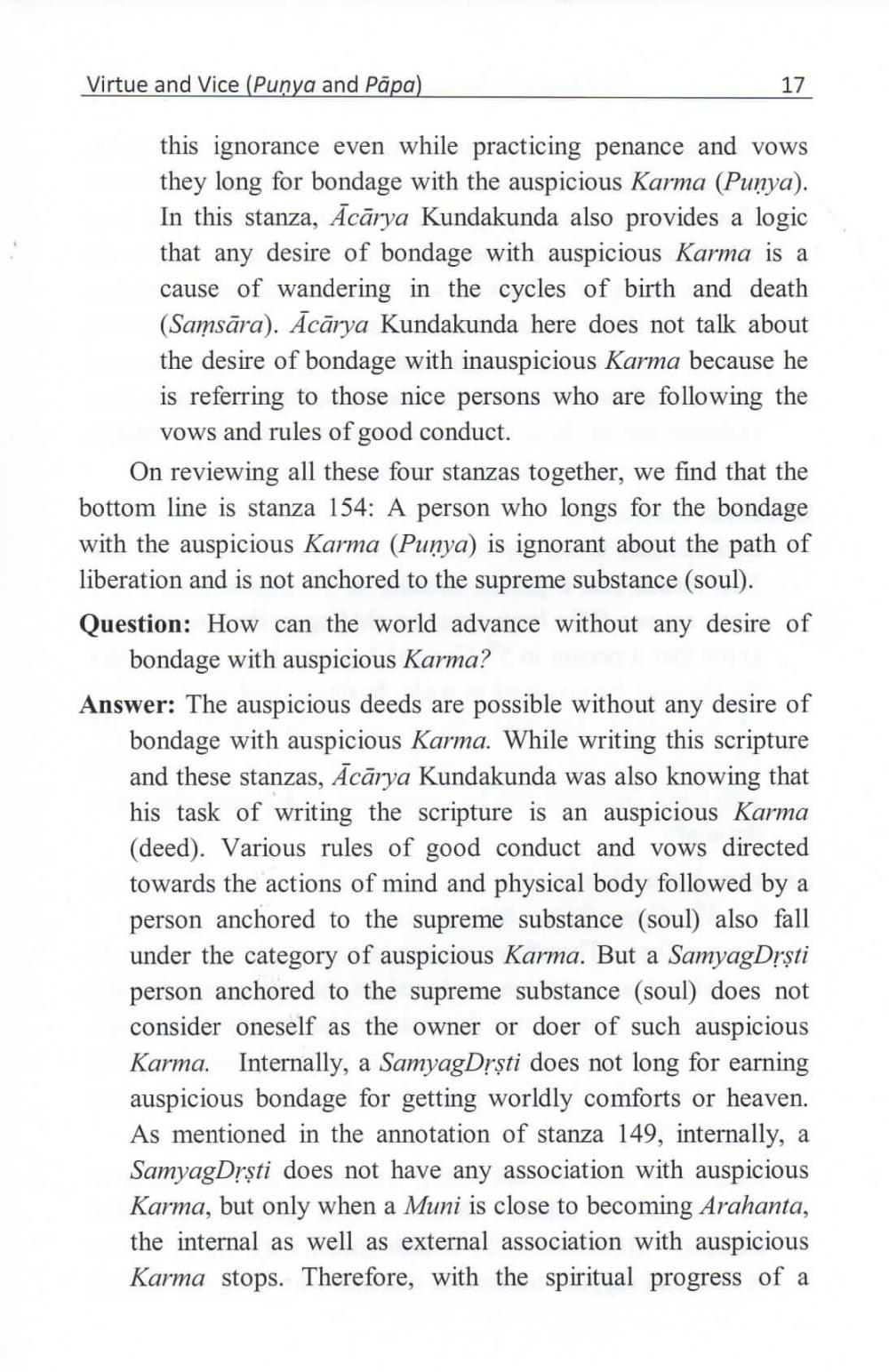________________
Virtue and Vice (Punya and Pāpa)
this ignorance even while practicing penance and vows they long for bondage with the auspicious Karma (Punya). In this stanza, Acārya Kundakunda also provides a logic that any desire of bondage with auspicious Karma is a cause of wandering in the cycles of birth and death (Samsāra). Ācārya Kundakunda here does not talk about the desire of bondage with inauspicious Karma because he is referring to those nice persons who are following the
vows and rules of good conduct.
On reviewing all these four stanzas together, we find that the bottom line is stanza 154: A person who longs for the bondage with the auspicious Karma (Punya) is ignorant about the path of liberation and is not anchored to the supreme substance (soul). Question: How can the world advance without any desire of
bondage with auspicious Karma? Answer: The auspicious deeds are possible without any desire of
bondage with auspicious Karma. While writing this scripture and these stanzas, Ācārya Kundakunda was also knowing that his task of writing the scripture is an auspicious Karma (deed). Various rules of good conduct and vows directed towards the actions of mind and physical body followed by a person anchored to the supreme substance (soul) also fall under the category of auspicious Karma. But a SamyagDrşti person anchored to the supreme substance (soul) does not consider oneself as the owner or doer of such auspicious Karma. Internally, a SamyagDrști does not long for earning auspicious bondage for getting worldly comforts or heaven. As mentioned in the annotation of stanza 149, internally, a SamyagDrști does not have any association with auspicious Karma, but only when a Muni is close to becoming Arahanta, the internal as well as external association with auspicious Karma stops. Therefore, with the spiritual progress of a




